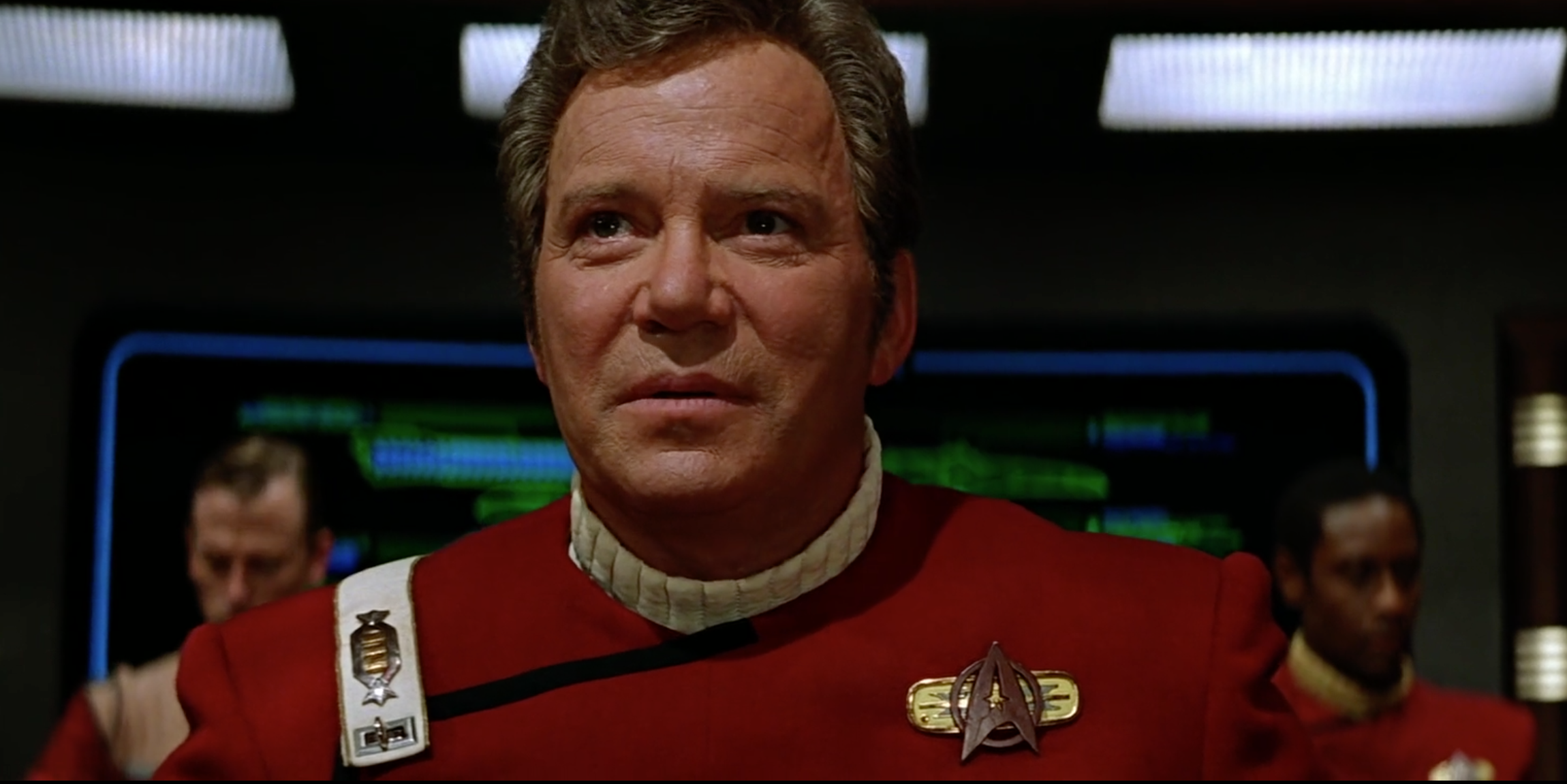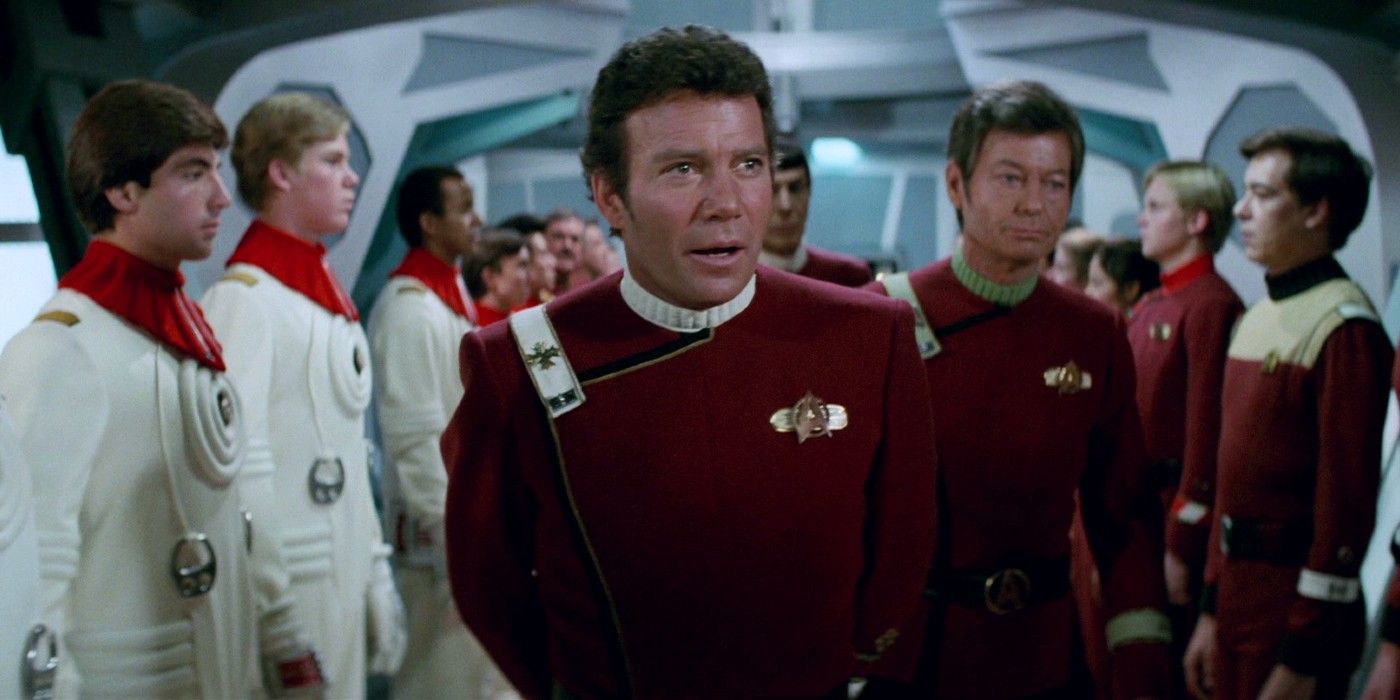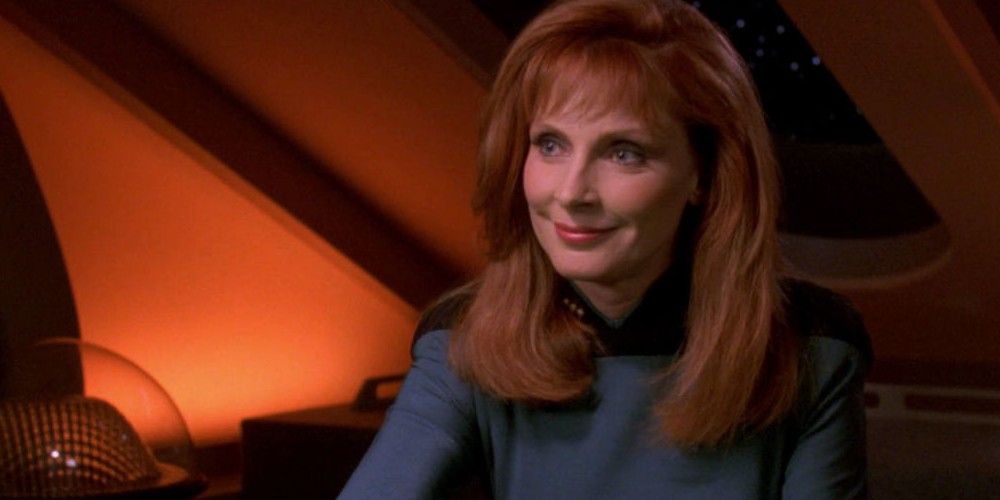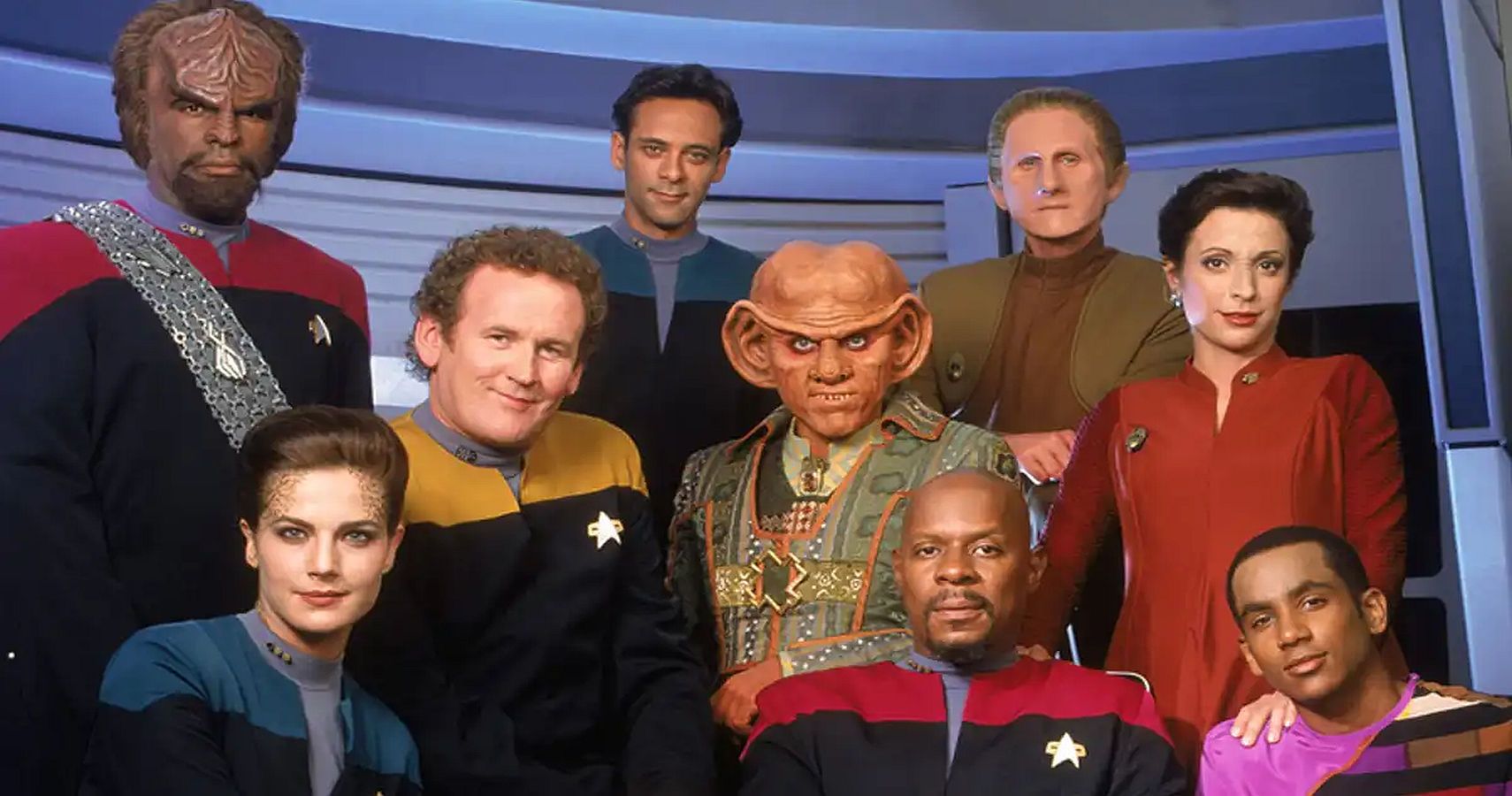Brian Volk-Weiss has made a career out of analyzing pop culture and people's connections to beloved franchises. Founder and head of The Nacelle Company production studio, Volk-Weiss previously explored the world of toys in 2017's The Toys That Made Us. Following the Netflix documentary series' success, Volk-Weiss and The Nacelle Company launched Netflix's The Movies That Made Us series. Now they're turning their sites on charting the epic history of the Star Trek franchise with the newly launched The Center Seat: 55 Years of Star Trek.
In an exclusive interview with the CBR, Volk-Weiss shared his connection to the fan-favorite Star Trek franchise. He teased some of the new information that The Center Seat documentary series will reveal to audiences -- in time for the franchise's 55th anniversary -- and hinted at what's to come next for Nacelle's rapidly growing documentary empire.
Brian, we've spoken before and I know you have a soft spot for Star Trek but do you remember what your gateway into this franchise was?
Brian Volk-Weiss: The official answer is my mom and, specifically, Star Trek II: The Wrath of Khan.
My mom introduced me to The Original Series. I always liked it but it was Star Trek II. I feel like everybody has their James Bond, like Sean Connery or Roger Moore. My Star Trek is basically [the first film] through Generations. I love Star Trek: The Next Generation and Deep Space Nine. I like Enterprise, but Kirk's movies -- that's my Star Trek.
While you've worked with Star Trek before, including an episode of The Toys That Made Us and producing Gates McFadden's podcast through Nacelle. What made you want to do a full documentary series on the franchise for the 55th anniversary?
I always wanted to do, what I call, a Ken Burns-style doc about Star Trek. Apparently, our society seems to get very excited about things every five years; I think they call them "anniversaries." We did one for the 50th that I definitely think needed to be improved. One of the problems with it, of many, was that, after you subtract commercials, we only had about an hour and 37 minutes to tell 50 years of history. In this case, we have ten hours to tell 55 years of history and, since we don't go past the [producer Rick Berman] years as of now, it was much easier to do ten hours of 35 years versus an hour and a half on 50.
In addition to all the interviews, you're also delving into obscure elements of the franchise's history, like Star Trek: Phase II. How is it exploring those under-appreciated corners of the franchise?
It's the greatest thing in the world because that's exactly what we're trying to do -- unearth these really cool tidbits that people are really going to enjoy, whether or not they've been a fan for 50 years or not a fan at all. I've learned a lot of stuff I didn't know anything about! I'm not a huge fan of Star Trek: The Animated Series. I hadn't even seen all the episodes until this show was greenlit. I now know so much more about The Animated Series. The Star Trek movies, I'd probably have a Ph.D. in that, but with The Animated Series, I didn't even have a first-grade education. Now I feel like my Star Trek fandom is more well-rounded. The other thing is, even when we were talking about topics that I thought I was an expert on, we were still learning new information. We did a two-hour interview with Kirstie Alley and now I will never look at Star Trek II the same way again.
You've got quite the list of interviews for this documentary series across Star Trek's entire history. How was it working with these guests to unearth new, interesting information?
When you're talking about something that's been so famous for so long, one of the things that's always interesting when you talk to people about this is -- I have this little trick I use in interviews. I say to people, "Forget about who you are and what you did. I really want you to think of yourself as a witness. Forget that you're an actor and that you and the show are famous. You are a witness there on the set and you knew how it smelled and sounded. Talk to me from that point-of-view."
Sometimes it happens right away. Sometimes you have to remind them. But if they start to think of themselves as a witness to history, they'll start telling you stories that may not have been a big deal to them as they were doing it. But now, 20-50 years later, it's very interesting. Those nuggets have historical significance today that they didn't have when they happened.
As someone who's a witness yourself, working with the various casts and exploring the franchise as a historian, this is happening while there's a resurgence of Star Trek on television. Based on your observations, what are some franchise hallmarks that you would like to see and what this resurgence should be mindful of?
I think if you have something like the Berman years, with multiple series on simultaneously, I think that it makes sense to do something like a DS9: you've got to find a new way in.
In this era now, I think there are two keys. One is you've got to be exploring. To me, the show is about new lives and civilizations and, to use a Battlestar Galactica expression, to go past the red line: that's what Star Trek is. You have this very delicate starship -- yes, it's a badass starship with phasers and photon torpedoes -- but at the end of the day, you're in a thin, metal thing billions of lightyears from safety. You've got to survive. I think that's important. The other thing that gets lost in all the Star Trek reboots is that you really do need to have the mystery-of-the-week.
If you watch TOS and TNG, it's a very simple format. You've got to have great characters that the audience falls in love with and you've got to have a mystery. There's a TNG episode, that everybody makes fun of, where a serial killer is a dog and the episode ends with Geordi shooting the dog -- who's really a murdering alien. Everybody makes fun of this episode and this episode is flawed a million different ways but there is a mystery and weirdness. So much of what Star Trek is that, while we've seen aliens before, we've never seen an alien that turns people into salt cubes: that's what makes the show great.
Something I've always said about TOS and TNG is that these people wouldn't even make it six months into the mission without having a nervous breakdown. Every week they almost lose the ship, half their friends almost die, and people would've had nervous breakdowns if this were real but that's the show. To me, that's what Star Trek is about and I hope that Strange New Worlds gets back to that, where you have the explorations and the dangers and risks that come with the exploration but that you also have simple but rewarding mysteries to solve... But not too simple!
You've done a lot of work with Netflix but what made the History Channel the right platform for The Center Seat?
I feel like History really understands pop culture. I think they really trust filmmakers. When we did the 50th [anniversary special], it was before The Toys That Made Us and, understandably so, they didn't give us the longest leash. This time, they gave us the longest leash possible and you want a partner that makes sense. It's the 55th anniversary of Star Trek and that qualifies as history. But you always want a partner that's going to allow you to make the show that you want to make and the History Channel allows us to do that. That's why we work with them over and over.
With this latest set of episodes for The Movies That Made Us, you delved into '80s horror films, which really hit the spot for me. What was it about focusing on these particular movies for this set of episodes?
I've always been fascinated by horror films. I'm not a crazy horror guy but I've always been fascinated by them and fascinated by why they're so popular. We also knew that Season 3 would be coming out right around the holidays so I proposed it. They loved it so we went off and did it.
As someone that isn't the biggest horror fan, what were some thing about movies, like Halloween and A Nightmare on Elm Street, that really surprised and struck you?
One of the things that I really loved, and I think why some of the films are really popular, is that the first movie in every one of these franchises, a lot of love goes into them. These are handcrafted movies with a lot of love, with one person doing four or five jobs. The director is also writing the music and companies risking their entire existence to make sure the movie works. All the people that we interviewed, there was so much love, not just for the movie but, sometimes more for the people making the movie. That was my biggest takeaway. That these were made with a lot of love.
How has your relationship with Netflix grown since launching The Toys That Made Us in 2017 and can we expect a Season 4?
The short answer to how our relationship with Netflix has grown is that it has grown! When we made The Toys That Made Us Season 1, that was the only show that we were doing, and now that we have a lot more than one going on at the same time. All I can say about The Toys That Made Us, and I'm sorry to be evasive but I need to be, is to stay tuned. Good things are happening.
As someone that's gone from a Grammy Award-winning comedy special producer to pop culture documentarian how is it getting firsthand access to the stuff we grew up and how does it stay creatively fulfilling for you?
Well, it's not exclusive. There are other companies making nostalgia-based docs that I love watching that work. We're not the only people doing it but I can't even believe it's happened. Before The Toys That Made Us, with almost everything we made, I've still got bills to pay. After The Toys That Made Us, we're only doing stuff now that we're excited and passionate about. To say that I get paid to interview Nicholas Meyer about Star Trek II, I literally can't even believe it. We have a show on Disney+ called Behind the Attraction and the fact that I'm getting paid to walk around Disneyland at four in the morning, I literally cannot believe it.
I've spent over a year looking for a better word to use than "surreal," but it's all very surreal. I was in Cincinnati over the weekend and I hadn't been there since we shot Season 1 of The Toys That Made Us and it was crazy being around the things that I saw four years, not knowing what was going to happen. All I know is I got very lucky and finally sold a show that I had been trying to sell for seven years. Walking around four years later... I literally cannot believe any of this has happened. It's shocking to me!
Directed and produced by Brian Volk-Weiss, The Center Seat: 55 Years of Star Trek airs Fridays on the History Channel.




